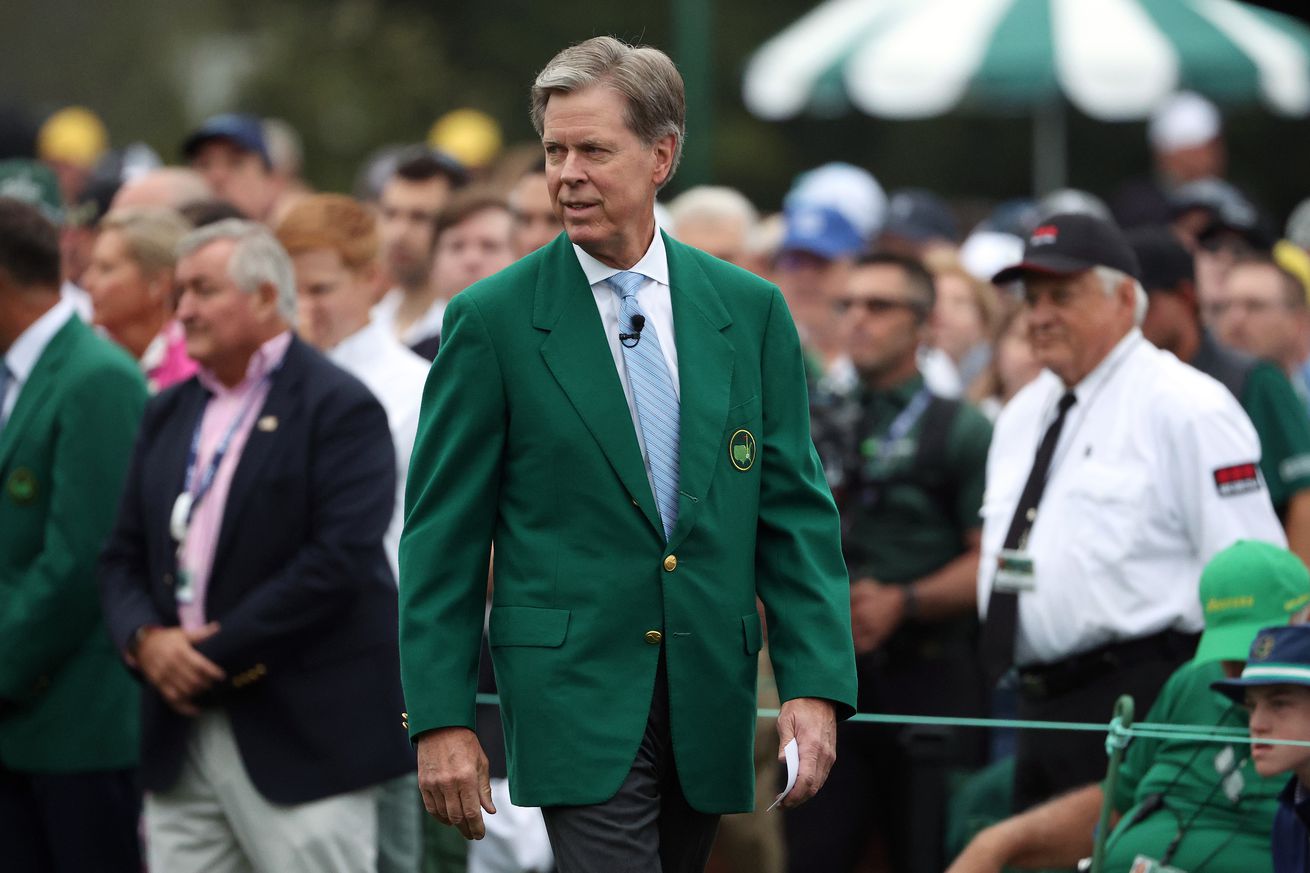Photo by Patrick Smith/Getty Images
Augusta National chairman Fred Ridley announced their decision to back the USGA and R&A as they look to roll back the golf ball.
During his annual address on the eve of The Masters, Augusta National Chairman Fred Ridley announced their support of the USGA and the R&A’s decision to roll back the golf ball.
Late last year, the two primary governing bodies of the sport of golf declared their intentions. The largest concern has been that with the advance of technology, and the progression of athletes, players are out-driving courses.
The use of a player’s middle irons has become a thing of the past in some places. So many professionals can hit driver off the tee and a wedge into the green.
Yet, this roll back will be universal. All golf balls will be rolled back, affecting how far someone can hit them. That includes Sunday golfers and amateurs alike.
Because of that, this has become a divisive issue in golf.
Four-time major champion Rory McIlroy previously expressed his support.
Photo by David Cannon/Getty Images
“I don’t understand the anger about the golf ball rollback. It will make no difference whatsoever to the average golfer and puts golf back on a path of sustainability,” McIlroy posted to X, formerly Twitter. “It will also help bring back certain skills in the pro game that have been eradicated over the past 2 decades.”
Yet, not everyone on the PGA Tour is in agreement. Keegan Bradley vehemently opposes the golf ball roll back and feels strongly about it.
“For the amateur world to hit the ball shorter is monstrous,” Bradley said. “I can’t think of anything more stupid than that. I don’t think it’s very smart at all, especially when golf’s growing in popularity coming out of Covid.”
The roll back is slated to be a gradual process that will take years to completely come to fruition.
Reports indicate that the average weekend golfer will lose approximately 10 to 15 feet in length off the tee. As McIlroy mentioned, how much of a difference is that ultimately making?
There was initially discussion of bifurcation of the golf ball. That is to say that professional balls would be rolled back but the rest of the golfing world would not be affected. However, if you read the tea leaves, it sounds as though manufacturers pushed back amid an unwillingness to create two types of golf balls; one which only a small segment of the population could play.
Yet, if this decision forces professionals to start playing other clubs and types of shots again, maybe it is worth it.
Ultimately, this is going to happen. So, stock up if you don’t want to lose a little length.
Kendall Capps is the Senior Editor of SB Nation’s Playing Through. For more golf coverage, follow us @_PlayingThrough on all major social media platforms.













